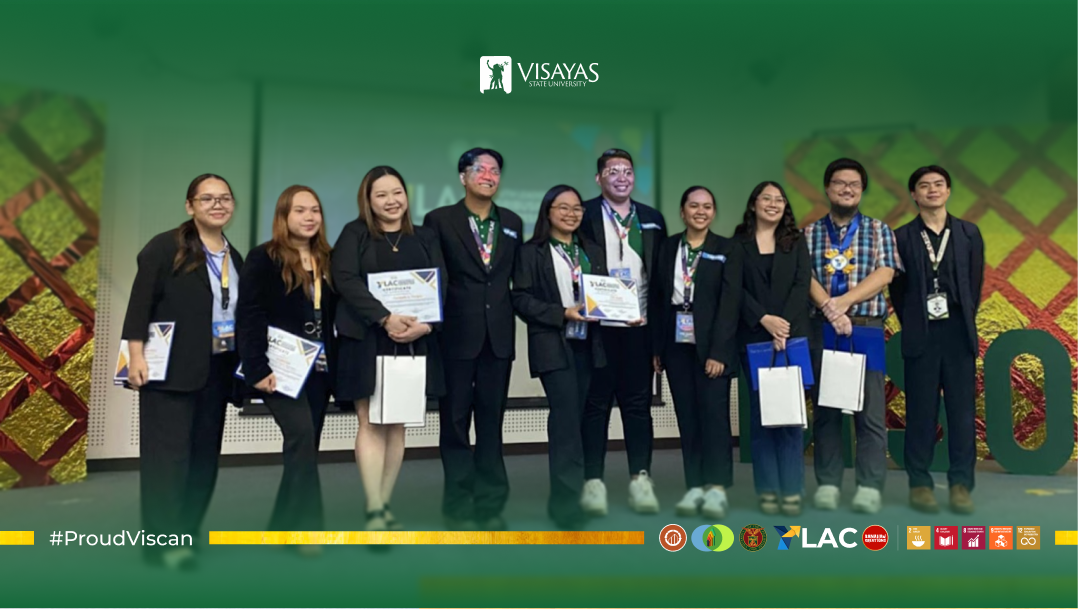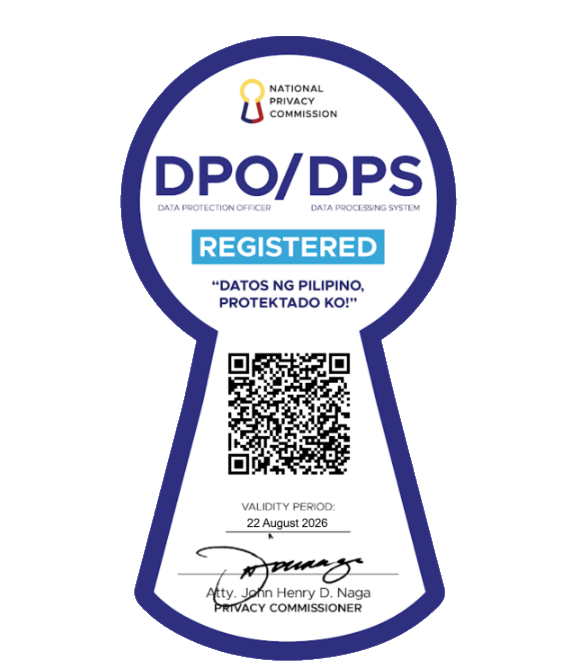#ProudViscan Agribusiness students land top 5 at annual agribusiness conference
- Details
- Written by Claudette Meli Hoff E. Garduce
-
Published: 12 August 2025

The Society of Agribusiness Students (SABS) of the VSU-Department of Business Management (VSU-DBM) added another feather to the university’s cap after finishing as a top five finalist at the Young Leaders of Agribusiness Congress (YLAC), held June 4–6, 2025, at the University of the Philippines Los Baños, Laguna.
This recognition places VSU among the country’s leading institutions in agribusiness education, with the SABS team standing alongside competitors from the University of the Philippines, Mindanao State University-General Santos, Mindanao State University-Main Campus, and UPLB.
The three-day event, organized by the UP Agribusiness Society, carried the theme “SIBOL: Sowing Ideas, Building Opportunities for the Leaders of Tomorrow” and gathered promising young minds for discussions, workshops, and competitions aimed at shaping the future of agribusiness.
The top-five finish comes on the heels of another major win for VSU’s Department of Business and Management (DBM).
Just recently, a team of fourth-year Agribusiness students took home the Intercollegiate Category award at the Young Farmers Challenge 2024, earning a ₱250,000 prize for their innovative freeze-dried banana product. These back-to-back achievements illustrate the department’s culture of innovation and its consistent ability to produce students ready to address pressing issues in agriculture and business.
Representing VSU in the YLAC were second-year students Lorenze Alemenia, Zach Bryant Barquera, Leslie Tapang, and Frankie Sophia Pastoril, under the guidance of adviser Ms. Maries O. Poliquit.
Ms. Poliquit expressed her joy at the team’s performance and noted that their perseverance and creativity had brought them to the national stage.
One source of inspiration for the team was Banahaw Creations, a former capstone project turned agribusiness venture. This product transforms leftover rice, or “bahaw,” into a flavorful paste to help reduce food waste.
Currently, the business offers flavors like chicken adobo, beef caldereta, and mixed seafood, all designed to make simple meals more appetizing.
“Nakahatag siya namo ug personal growth. It made us realize nga there is more pa gyud sa agribusiness,” Pastoril shared.
[It gave us personal growth and made us realize that there is more in agribusiness.]
The road to the finals tested the team’s analytical and problem-solving skills. In the semi-finals, they were given 24 hours to solve two business cases. In the final round, they had just two and a half hours to analyze and present solutions for a dense 16-page case study.
“It was the most challenging part, since even though we have already solved many business cases and case studies, we did not expect that it was too time-constrained,” Pastoril recalled.
Alemenia added that the judges commended their implementation plan for being detailed, streamlined, and designed for long-term execution.
The students credited their readiness to the training and workshops from their classes, as well as the case study sessions organized by SABS over the past two years. As officers of the association, they expressed a desire to continue conducting these workshops to prepare future participants.
“Now that we have gained experience from the competition, we hope to compete again next year with more knowledge and practice,” Tapang said, signaling that this achievement is just the beginning of more national-level engagements for VSU Agribusiness students.
This article is aligned with Sustainable Development Goal (SDGs) 4: Quality Education; SDG 8: Decent Work and Economic Growth, SDG 9: Industry, Innovation and Infrastructure, and; SDG 12: Responsible Consumption and Production.


